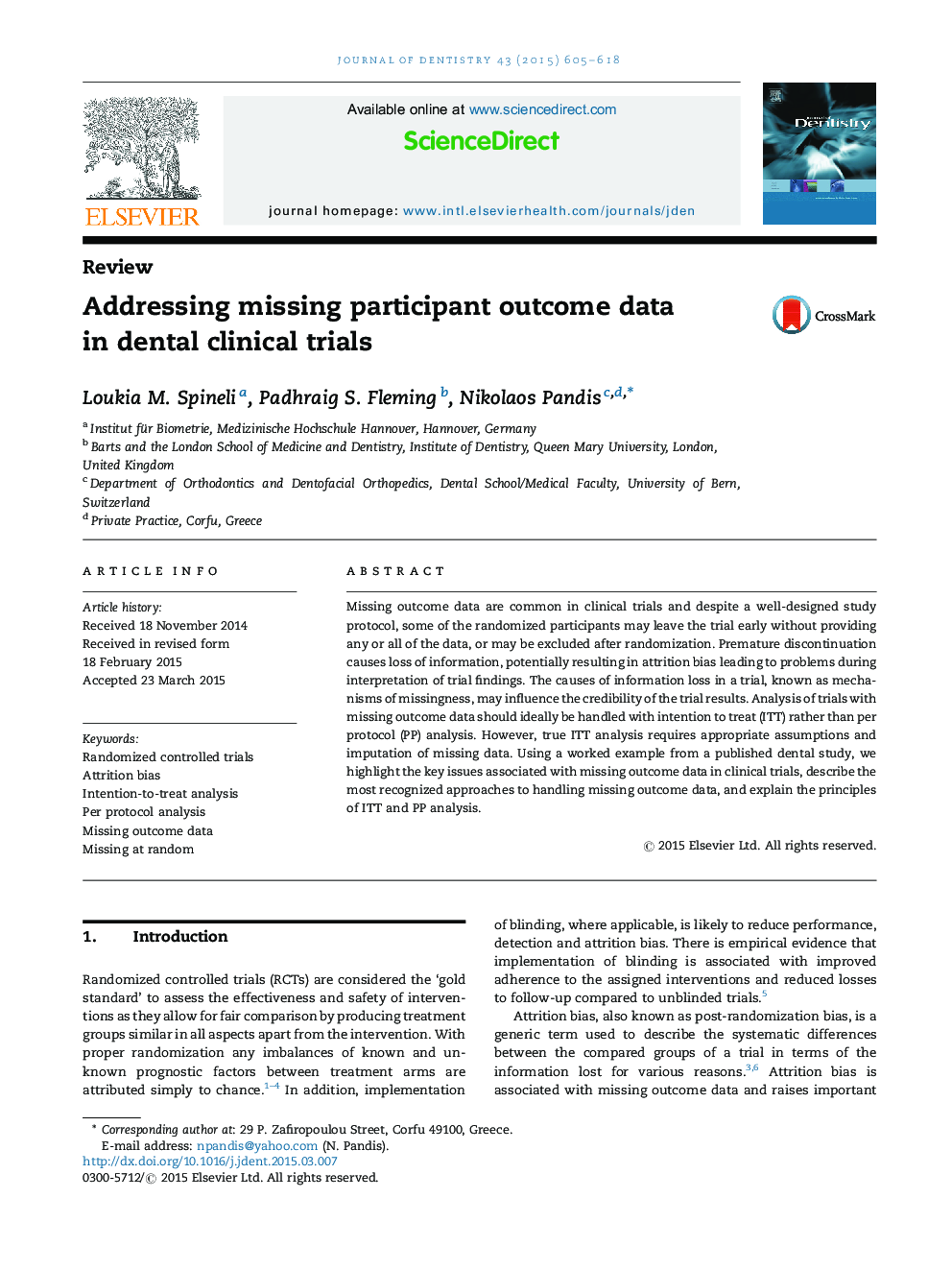| Article ID | Journal | Published Year | Pages | File Type |
|---|---|---|---|---|
| 6053197 | Journal of Dentistry | 2015 | 14 Pages |
Missing outcome data are common in clinical trials and despite a well-designed study protocol, some of the randomized participants may leave the trial early without providing any or all of the data, or may be excluded after randomization. Premature discontinuation causes loss of information, potentially resulting in attrition bias leading to problems during interpretation of trial findings. The causes of information loss in a trial, known as mechanisms of missingness, may influence the credibility of the trial results. Analysis of trials with missing outcome data should ideally be handled with intention to treat (ITT) rather than per protocol (PP) analysis. However, true ITT analysis requires appropriate assumptions and imputation of missing data. Using a worked example from a published dental study, we highlight the key issues associated with missing outcome data in clinical trials, describe the most recognized approaches to handling missing outcome data, and explain the principles of ITT and PP analysis.
